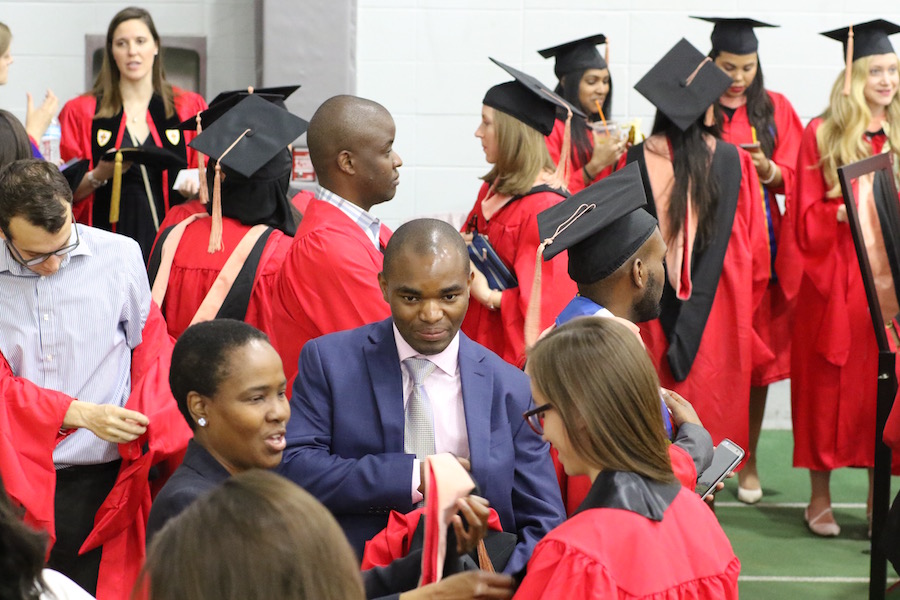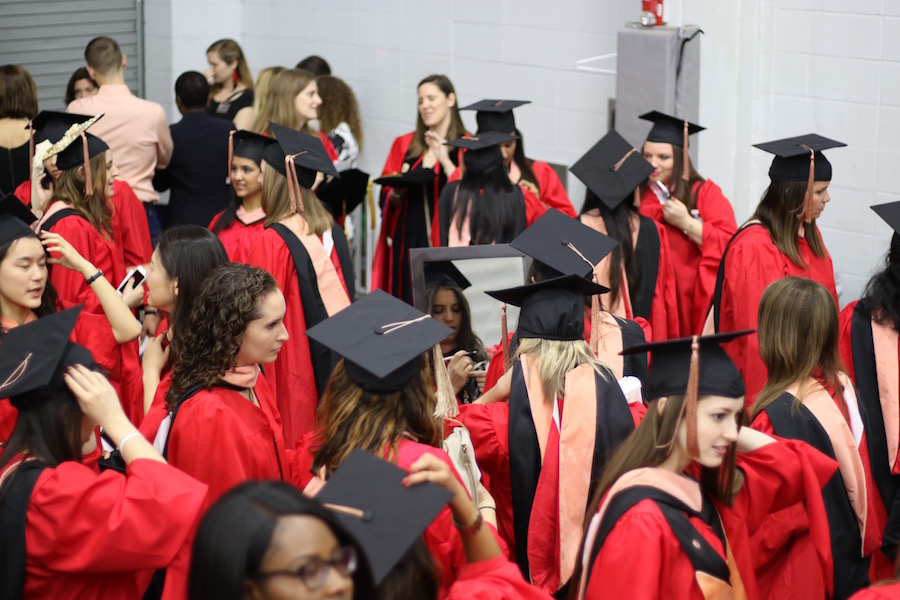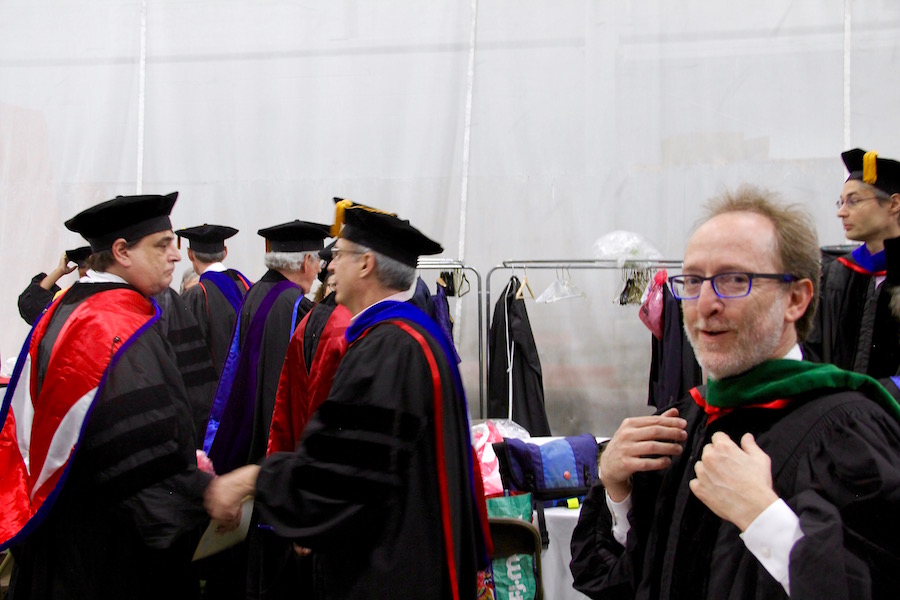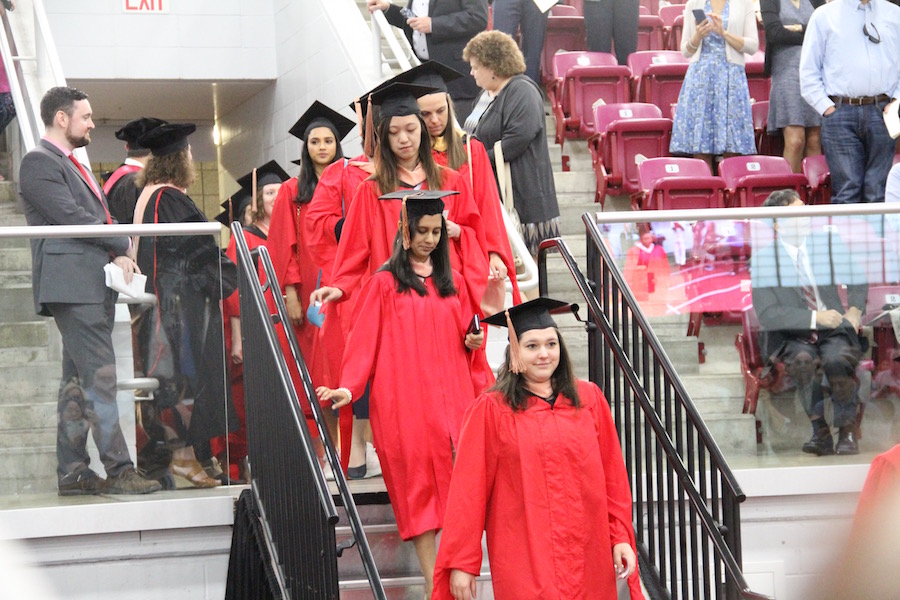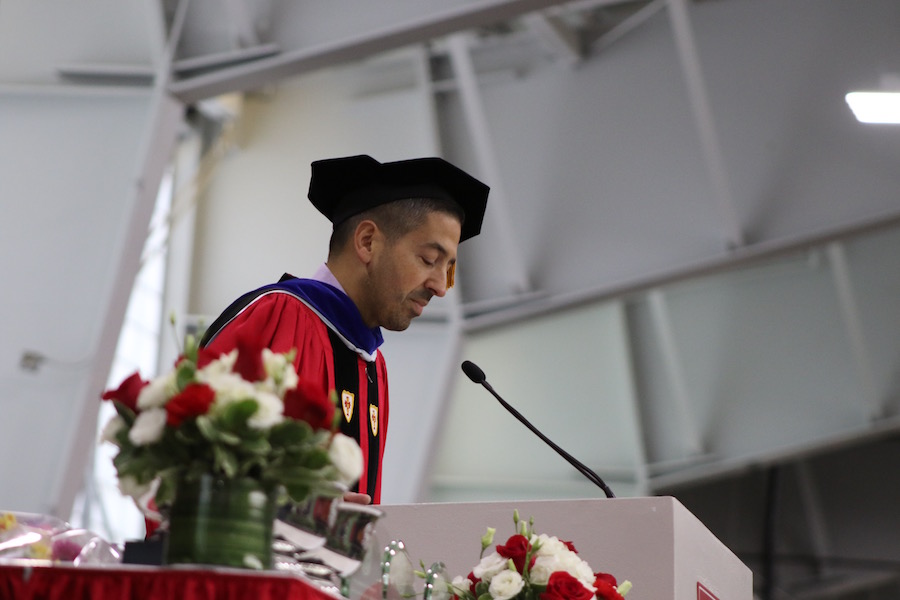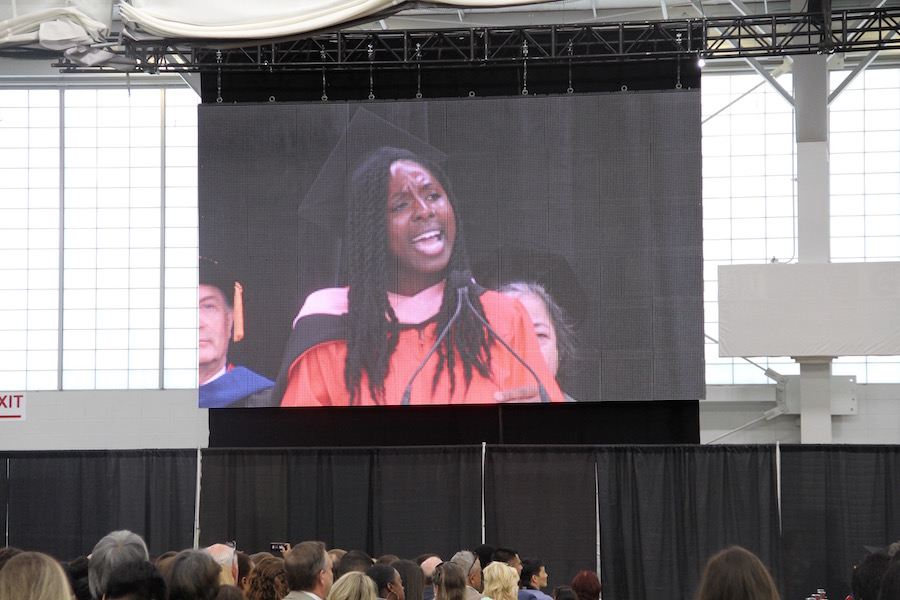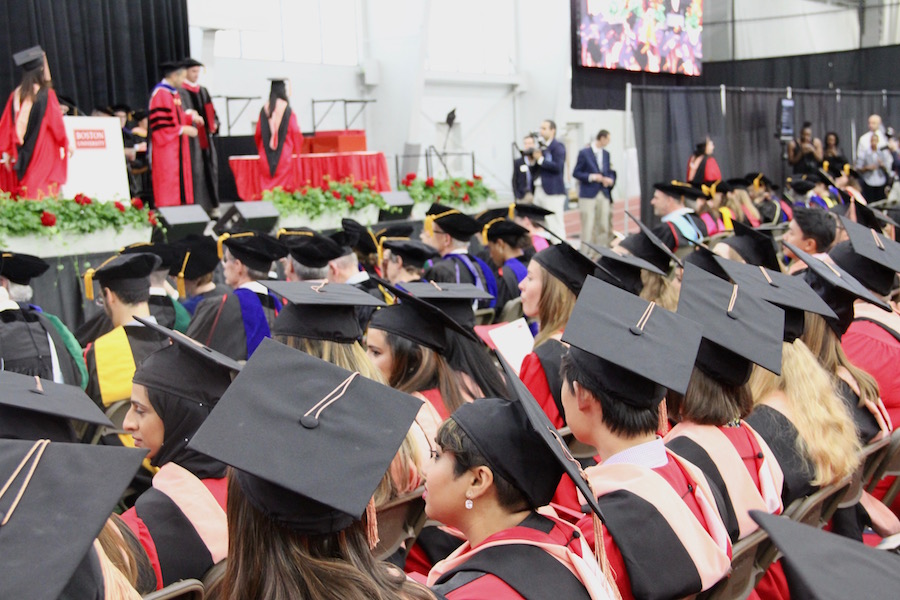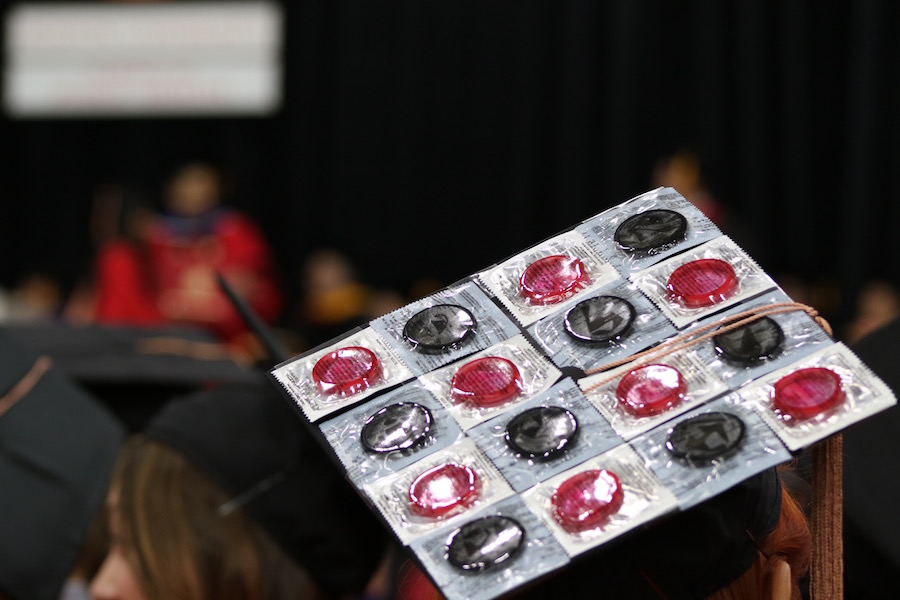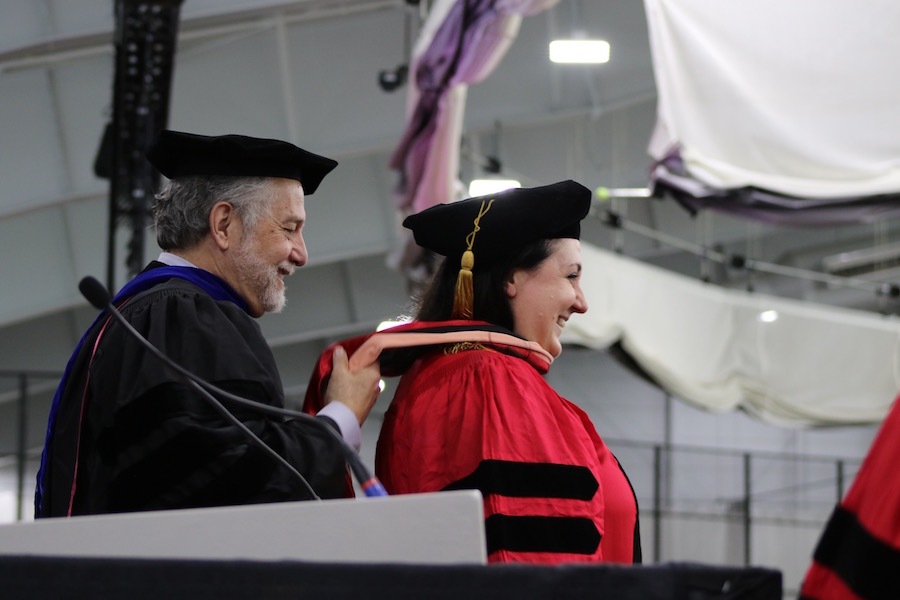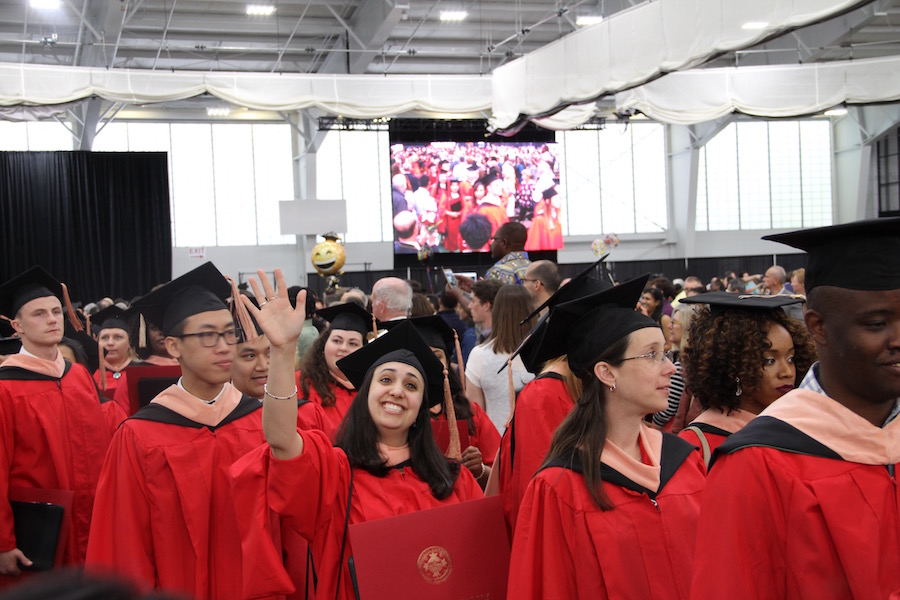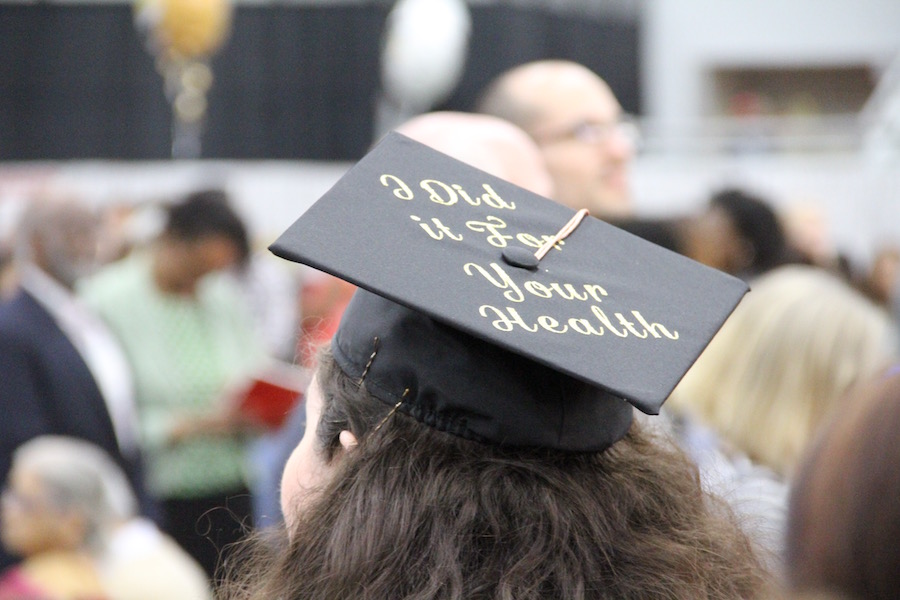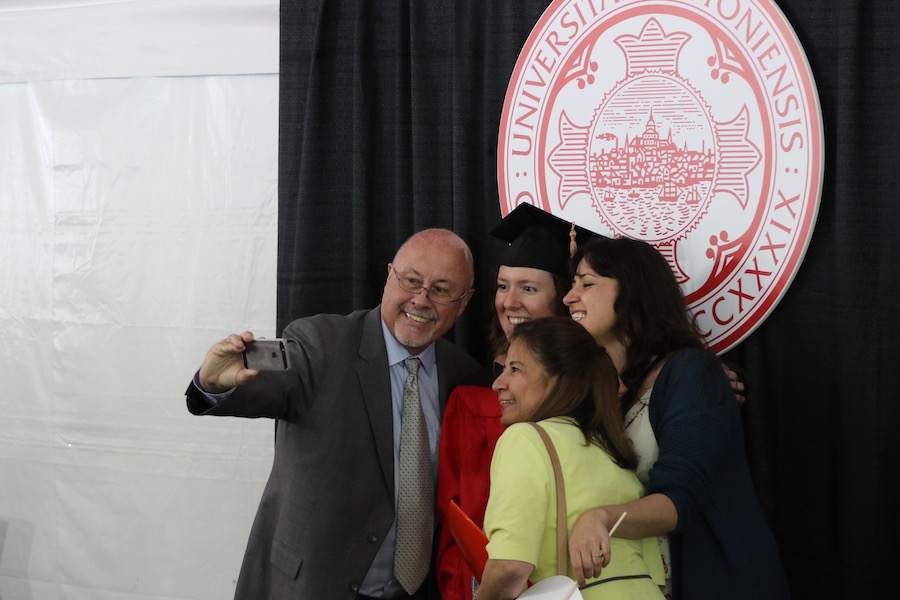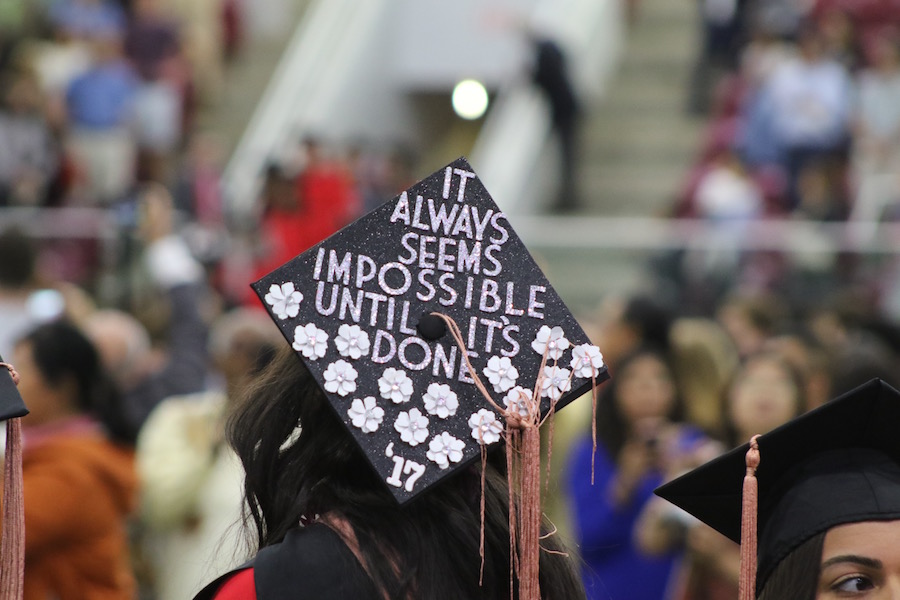2017 SPH Convocation: ‘There Is Only Us’.
Speaking to the 330 School of Public Health graduates at the School’s Convocation at the Boston University Track and Tennis Center on Saturday, the Reverend Liz Walker urged the audience to “practice grace.”
“There are voices out there that seem to insist the world is divided between us and them,” she told the graduates and guests. “I have been to many places in the world, and I am here to tell you: There is only us.”
Walker is the minister at Roxbury Presbyterian Church, home to the Cory Johnson Program for Post-Traumatic Healing. Locally she is best known for her career in TV news, with an Emmy Award already under her belt before joining WBZ-TV as Boston’s first African American news anchor. She also spent more than a decade working on humanitarian projects in South Sudan, including the creation of a girls’ school and an organization helping Sudanese and South Sudanese women bridge regional, racial, and religious divides.
She focused her convocation address on “an idea that I think will ultimately save the world,” she said: the concept of grace. “Grace is thought of in the church as divine forgiveness, but I would argue that grace is much more than that,” she said.
Walker explained she lives in Jamaica Plain, on the Jamaica Way, a two-lane road going into Boston. During rush hour “nobody’s going fast, but everybody’s mad on the Jamaica Way,” she said. “The traffic is bumper-to-bumper but no one lets you in.
“So here’s my definition of grace: Just let somebody in.”
Walker said she came to the idea of grace in 2001, when she traveled to South Sudan for a news story, investigating allegations of slavery in the midst of the Second Sudanese Civil War.
“This is a part of the world that seems always caught in conflict,” she said. “There are always wars, there are always droughts and famines both natural and man-made. People are killed by the thousands and by the hundreds of thousands, and in the midst of chaos I was exposed to the kind of grace that I’ve never seen before.”
Walker attributed that sense of grace to the same ethnic, religious, and tribal affiliations usually blamed for conflict. “In South Sudan people say, ‘We belong to each other,’” she said. “On a certain level there are wars and conflicts, but underneath there are people who belong to each other.”
Walker left television journalism for humanitarian work in South Sudan. It was during that time she felt called to ministry, and went on to attend Harvard Divinity School. She now puts her definition of grace into practice as the minister of Roxbury Presbyterian Church and the leader of its work with Boston Medical Center and other institutions on post-traumatic healing. “We have decided to focus on the long-term effect of violence, loss, and grief, what happens after the yellow police tape is down and the physical wounds have healed,” she said.
Walker reminded the audience such trauma is not limited to “war or urban violence,” but is instead, in an interconnected world, experienced by everyone. “All you have to do is turn on your television for a while and watch the news,” she said. “Once you watch for a few minutes you start twitching, and then you feel like you want to slap somebody. That’s trauma, and it’s slowly eating away at our ability to practice or even see grace in the world.”
Grace becomes more and more difficult every day, she said, and so it becomes more and more necessary. “We don’t have to agree,” she said. “We don’t have to hang out together. We don’t have to hide our anger, but in seeing each other’s humanity and in seeing something possible in the other person, we can elevate the discourse and in the process elevate each other.”
Walker closed by urging the graduates to recognize those connections, to see the possibility in others and “give them a break,” in their work in the field of public health, wherever they might find themselves. “In that moment, you will have lifted all of us.”
Student speaker Cassandra Osei, an MPH recipient committed to tackling structural inequities, stressed the importance of recognizing individual stories within vulnerable populations.
Osei, a spoken-word poet, performed her own story as an example of how determinants of health intersect in individuals. The daughter of Ghanaian immigrants, “I was raised in Chicago, and I lived the results of structural injustice,” she said. She described how immigration, racism, sexism, and trauma have all had their affects on her life.
“Misogynoir is real,” she said, referring to “where racism and sexism meet.” Osei’s own work has focused on the mental health of black women. “Mental and public health have a long way to go before they can understand the systemic complexities of a black woman’s story,” she said.
Osei called her speech not a “woe is me plea” but a public service announcement. She urged her fellow graduates to remember “there’s always a determinant you may not know is embedded in another person’s story.” Effective public health work, she said, requires being humble enough to recognize that.
During Saturday’s ceremony, two faculty members were honored for teaching and scholarship. Howard Cabral, professor of biostatistics and co-director of the Biostatistics Graduate Program, received the Norman A. Scotch Award for Excellence in Teaching, awarded annually for outstanding and sustained contribution to the education program. Judith Bernstein, professor of community health sciences, received the Faculty Career Award in Research and Scholarship.
Sandro Galea, dean and Robert A. Knox Professor, also congratulated Sophie Godley, clinical assistant professor of community health sciences, winner of the University’s highest teaching honor, the Metcalf Cup and Prize, which Galea presented at the main Commencement ceremony on May 21. Godley also received her doctorate during the SPH convocation, to cheers from her former students.
Student Ayobami Olanrewaju was awarded the Leonard H. Glantz Award for Academic Excellence, and Karen Smith, department and financial manager for community health sciences, received the Dzidra J. Knecht Staff Award for Distinguished Service.
At a separate ceremony on May 19, SPH recognized students for their outstanding contributions and achievements at a student awards ceremony. Director of Graduate Student Life Mary Murphy-Phillips also received the ASPPH Student Services Excellence Award. The student awardees were:
- Quinn Hirsch: Excellence in Student Service & Leadership Award
- Jesse Walsh: Award for Student Excellence in Public Health Practice
- Nelson Holmes and Ayobami Olanrewaju: Rex Fendall Award for Excellence in Public Health Writing
- Michelle Huezo: Katherine M. Skinner Memorial Prize for Commitment to the Study of Women’s Health Issues
- Angela Giordano and Michelle Huezo: Community Health Sciences “Rising Star” Award
- Rachel Parker: Herb Kayne Prize for Excellence in Biostatistics
- Kaitlyn Berry and Chia-Ying Wendy Lin: John Snow Award in Global Health
- Emily Dore and Casey Alexander: Allan R. Meyers Memorial Prize for Excellence in Health Services
- Nina Rizk: Health Law, Bioethics & Human Rights Capstone Award
- Chad Coleman: Dr. Theodore Colton Prize for Excellence in Epidemiology
- Sara Schenkel: Dr. William B. Patterson Memorial Prize for Excellence in Environmental & Occupational Health




